  First Impressions: Members Recommend Each month we give away books to U.S. resident members to read and review (or discuss). Members who choose to participate receive a free book about every three months. Here are their opinions on one recent release. 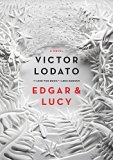 Edgar and Lucy by Victor Lodato Edgar and Lucy by Victor Lodato Publisher: St. Martin's Press
Publication Date: Mar 2017
Novel, 544 pages
Number of reader reviews: 33
Readers' consensus: 4.4/5.0
Members Say "Brilliant. This is not just a great American novel, it is a great human novel. This is the finest writing I've read in a very long time. Victor Lodato deserves every literary accolade available for this one. The story is about human-ness. It is about love in all forms. It is about human stupidity and weakness. It is about human fortitude and strength. It is about everything human - written so beautifully that we can move from page to page with understanding and compassion for the tragedies and failings and kindnesses of everyone involved in this epic story. I will say no more because I do not wish to reveal any of the story ahead of its being read. It is too profound to spoil with trivia." - JW Davis, CA "If you enjoy character-driven stories illustrated with luminous prose, you will enjoy Edgar and Lucy. Edgar's relationship with his grandmother, Florence, his mother Lucy, and Conrad the man who takes him away from his family, comprise the main story. But the ghost of his father and his grandmother, and Edgar's interior dialogue add depth to the story. I'm impressed with the way the author gets into Edgar's head and shows us his point of view. I plan to read anything else this author writes." - Elizabeth K. (Dallas, TX) "Beautiful. I will definitely look for Lodato's other works." - Molly B. (Longmont, CO) "The language is so gorgeous that I found myself re-reading whole paragraphs just to enjoy it again. Sad, quirky and oddly humorous. Loved it." - Carol F. (Lake Linden, MI) "It would be an especially good book for book clubs as there are so many potential areas of discussion ... I would actually reread this book and that is something I have only done perhaps 2-3 times in 60 years of reading avidly. Enjoy...you owe it to yourself." - Vicki C. (Franklin, TN)
More about this book | Read all the reviews Buy at Amazon | B&N | Indie |
  First Impressions: Members Recommend 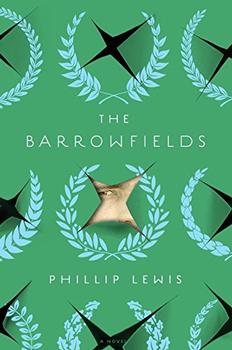 The Barrowfields by Phillip Lewis The Barrowfields by Phillip Lewis Publisher: Hogarth Books
Publication Date: Mar 2017
Novel, 352 pages
Number of reader reviews: 16
Readers' consensus: 4.0/5.0
Members Say "I enjoyed Phillip Lewis' debut novel of the Appalachian town of Buckram. The reverence with which he portrays the family of his protagonist Henry Aster is realistic and gives the novel its background tone." - Liz D. (East Falmouth, MA) "This was really quite an incredible book! I am having a hard time writing a review for it because I don't know where to start. The characters, place, relationships, voice - all were so important to the plot, and they were all handled so well ... I highly recommend this to people who like emotionally intense stories that have a lot of depth. I think that the maturity of this debut novel speaks well of Phillip Lewis and I am looking forward to more books by him." - Jan Z. (Jefferson, SD) "About a quarter of the way into this heart-loving book I knew I loved this story. This family-centric novel and the very real characters are people in real life. Messy, paths not taken, missed love, wonderful love and family solidarity ... This book has it all. Absolute. Triumph." - Darcy C. (San Diego, CA) "I find it hard to believe that this is a debut novel. I read it once for review purposes; now I am going to read it again for the pure enjoyment of it. Thank you, Phillip Lewis!" - Annie P. (Murrells Inlet, SC)
More about this book | Read all the reviews Buy at Amazon | B&N | Indie |

|
  Editor's Choice 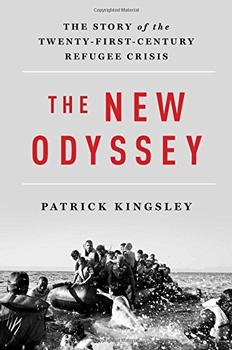 The New Odyssey by Patrick Kingsley Hardcover (Jan 2017), 368 pages. Publisher: Liveright / WW Norton. BookBrowse Rating: 5/5, Critics' Consensus: 4.5/5 Buy at Amazon | B&N | Indie Review and article by James Broderick One of the foundational works of the Western imagination, The Odyssey, by the Greek poet Homer, tells the story of one man's epic struggle in the wake of devastating warfare as he embarks on a years-long journey that requires him to battle sorcerers, monsters, even the dead. It's a defining text in the shaping of our understanding of the ancient world, its mythic contours and its primal impulses. So if you are going to call your book The New Odyssey, you'd better have a hell of a story to tell. Patrick Kingsley, author of The New Odyssey, tells a hell of a story. And in some ways, it's become the story of our times. There's no way Kingsley could have foreseen the election of Donald Trump as U.S. president when he began to report first-hand the plight of refugees from Syria, Egypt, and sub-Saharan Africa throughout Europe, several years ago. But Trump's headline-making "Executive Order" restricting access to the United States for refugees from certain designated countries has given added prominence to a humanitarian crisis that is engendering wildly different responses from citizens and political leaders around the globe. Kingsley, the Guardian's first ever "migration correspondent," has fashioned a book that is part policy analysis, part history lesson, and part page-turning thriller. Let's add "public service" to that list of nouns; for those to whom the "refugee crisis" is some abstract, geo-political conflict that seems like it doesn't concern them, Kingsley has something to say to you: these are your fellow human beings. And they are suffering and dying in alarming numbers, forced to make the grim calculation between staying in places like Damascus, Kabul, and countries like Somalia, which are being destroyed by shell fire and terrorized by warlords and religious extremists or risking their lives with smugglers who cram them in the trunks of jeeps traversing hundreds of miles of burning desert and rickety, dangerously overcrowded fishing boats at the mercy of the Mediterranean sea for days or weeks. ... continued Full access to our reviews & beyond the book articles are for members only. But there are always four free Editor's Choice reviews and beyond the book articles available.
|
 Beyond the Book: The Odyssey Every time we review a book we also explore a related topic. Here is a recent "beyond the book" article for The New Odyssey by Patrick Kingsley
The New Odyssey brings to mind the original epic with which this book has many parallels. Literary works don't come much more venerable or influential than The Odyssey, a 12,000-line poem written in ancient Greek and composed sometime in the eighth century B.C.E. Granted, it's likely not every contemporary reader's favorite work (although you probably would have felt differently 2,000 years ago, when it was the poem to know). And for those countless generations of students who were forced to read The Odyssey, perhaps the work seemed more like an epic pain than an epic poem, but at least you had the "epic" part right. In fact, it's widely considered the most "epic" work in all of Western literature-perhaps ironic since it's not known with certainty who composed it or even whether it was ever intended to be written down. 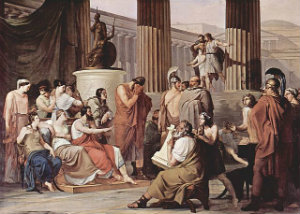 Although the name "Homer" is often associated with the work, the truth is scholars are mostly agreed that "Homer" could be as much of a fiction as the poem itself (or, as the old joke among classics professors goes: " The Odyssey wasn't written by Homer. It was written by some other guy named Homer."). There is strong supposition that the poem began its life as an oration, the work of a poet working in the oral tradition. Gradually, the work might have been enlarged and expanded by subsequent generations of poet-storytellers. The Odyssey is also literature's first sequel, picking up events after another work attributed to Homer, The Iliad, the story of the Trojan War. Knowledge of The Iliad is not necessary to enjoy or understand The Odyssey, which is the far more popular of the two works among general readers, but having some sense of the length (ten years) and significance (inspiring countless poems, operas, and films) of that war might help you empathize with Odysseus, the hero of the epic. Much of the popularity and continuing impact of the poem derives from the utter simplicity of its central conceit: put simply, a guy is just trying to get home to his wife and son ... continued
|
  Blog: Circadian Novels Every time BookBrowse reviews a book we also go "beyond the book" to explore a related topic such as this article relating to Nicola Yoon's The Sun Is Also a Star: 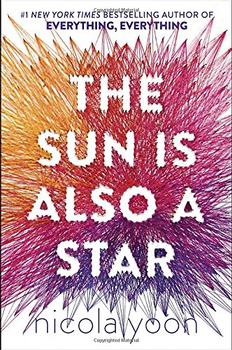 Nicola Yoon's The Sun Is Also a Star is an example of a circadian novel where the main action (except flashbacks, for instance) takes place all on one day. The most celebrated example is James Joyce's Ulysses (1922), set in 1904 Dublin on what has come to be known as "Bloomsday," June 16th. The protagonist, Leopold Bloom, mostly wanders the streets of his city: attending a funeral, arguing in a pub, and so on. The Sixteenth of June (2014) by Maya Lang recreates the format of Ulysses in a near-contemporary story set in Philadelphia.
Three years after Ulysses came another famous circadian novel, Virginia Woolf's Mrs. Dalloway (1925). On this average day in London the title character, high-society housewife Clarissa Dalloway, quietly ponders her life as she plans a grand party. Michael Cunningham's The Hours (1998), a deliberate homage to Mrs. Dalloway, similarly takes place on one day, while Woolf's Between the Acts (1941) is another example of a circadian novel.
Joyce and Woolf are known for their stream-of-consciousness style; that's certainly not an essential element, though many circadian narratives are in the present tense to capture a sense of immediacy. Literary critic John Mullan believes that the first true circadian novel was Twice Round the Clock (1859) by George Augustus Sala, a protégé of Charles Dickens. It devotes one chapter to each hour of the day and includes vivid descriptions of everyday meals and fashion in 1850s London ...continued
|
  Win This Book  The Twentieth Day of January
by Ted Allbeury
Published Mar 2017
224 pages
Enter the Giveaway
From the Jacket Written by the bestselling author of The Crossing and Pay Any Price, this remarkably plausible thriller offers a heady mix of political intrigue and intense suspense - with the very future of America and the free world hanging in the balance. It's 1980 and the Cold War continues to rage. Seemingly out of nowhere, wealthy businessman Logan Powell has become President-elect and is only weeks away from assuming the most powerful position in the world on the twentieth day of January. Across the Atlantic, veteran British intelligence agent James MacKay uncovers shocking evidence that suggests something might be terribly wrong with the election. With the help of a reluctant CIA, MacKay sets out on a dangerous and daring mission to discover if the unthinkable has occurred: is President-elect Powell actually a puppet of the Soviet Union? A bestseller in 1980 The Twentieth Day of January (aka Cold Tactics) has been republished in 2017 having received major media attention since it deals with many of the controversies surrounding the 2016 election. Reviews "Allbeury, like le Carré, is a master of the genre, and this novel represents some of his best work." - Booklist "Allbeury's novels have won a reputation not only for verisimilitude but for crisp, economical narration and high drama ... there's no better craftsman." - Chicago Sun-Times "A most knowledgeable chronicler of espionage." - The New York Times Book Review "When I say Ted Allbeury knows where the bodies are buried I mean it literally. Truly a classic writer of espionage fiction." - Len Deighton, author of The Ipcress File We have 5 paperback copies of The Twentieth Day of January by Ted Allbeury to give away. This offer is open to residents of the USA and Canada only, except for BookBrowse members who are welcome to enter wherever they live. Enter the giveaway Past Winners
|
 About BookBrowse
Get to know BookBrowse through our 4-part introductory series:
|
Your guide toexceptional books
BookBrowse seeks out and recommends the best in contemporary fiction and nonfiction—books that not only engage and entertain but also deepen our understanding of ourselves and the world around us.
|